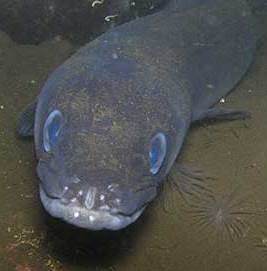Heriot-Watt University

Institute of Life and Earth Sciences (ILES)
The majority of marine scientists within Heriot-Watt are hosted within the Institute of Life and Earth Sciences (ILES), part of the School of Energy, Geoscience, Infrastructure and Society (EGIS). Research and teaching within the Institute of Life and Earth Sciences (ILES) falls within the three areas, namely Environment, Health and Food Science. Furthermore, ILES includes the International Centre for Island Technology (ICIT), based at Heriot-Watt's Orkney Campus in Stromness, is internationally recognised for its research, training and consultancy in renewable energy, marine science and environmental resources. In addition, ILES also includes staff within the Lyell Centre, in the areas of geoscience, marine, freshwater and ecosystem science. ILES hosts the Centre for Marine Biodiversity and Biotechnology (CMBB).
The CMBB is an interdisciplinary research centre focusing on the challenges of understanding marine biodiversity, unlocking the biotechnological potential of marine organisms and understanding how marine life can cope with environmental change. Researchers at CMBB study the oceans, the largest ecosystem on earth covering more than 70% of our blue planet. We rely on the oceans for food, recreation and the oxygen in every fourth breath we take. The oceans were the cradle for life on Earth and today support an incredible array of habitats from shallow tropical reefs to the vast expanses of the deep sea.
No one knows how many species live in the sea but there are more types of animals in the oceans than any other environment on Earth. Understanding this biodiversity needs expertise from classical marine biology to the latest molecular genetics techniques and underwater survey technologies – expertise brought together in Heriot-Watt University's Centre for Marine Biodiversity & Biotechnology.
Scientific expertise from the CMBB regularly informs conservation policy development in Scotland and further afield, through the creation of Marine Protected Areas. They also give further specialist advice to international bodies including the Intergovernmental Panel on Climate Change (IPCC).
The School of Energy, Geoscience, Society and Infrastructure (EGIS)
We are proud of our international research reputation and close connection with the professional and industrial world of science, engineering and technology.
Our programmes are designed to meet the needs of our students and their future employers, offering the highest degree of flexibility and choice within the wide range of topics available. With a strong foundation of core strengths, we have the expertise to tackle a wide range of challenging and important problems.
Head of School: Professor Malcolm Chrisp
Director of Institute (ILES): Professor Teresa F. Fernandes
Heriot Watt University is a member of the Marine Alliance for Science and Technology for Scotland and information about equipment, knowledge and capabilities within the MASTS community is available at the following link: MASTS (http://www.masts.ac.uk/).
Heriot Watt University is a member of the Marine Alliance for Science and Technology for Scotland and information about equipment, knowledge and capabilities within the MASTS community is available at the following link: MASTS
Funding by Source
| Funding Proportion | |
|---|---|
| Scottish Funding Council | 20-39% |
| European Community | 20-39% |
| Natural Environment Research Council | 0-19% |
| Biotechnology and Biological Sciences Research Council | 0-19% |
| Engineering and Physical Sciences Research Council | 0-19% |
| Economic and Social Research Council | 0-19% |
| Other public sector | 0-19% |
| Government departments | 0-19% |
| UK private sector | 0-19% |
| Foreign (other than EC contracts) | 0-19% |
| Foundations, charities | 0-19% |
| Other external income | 0-19% |